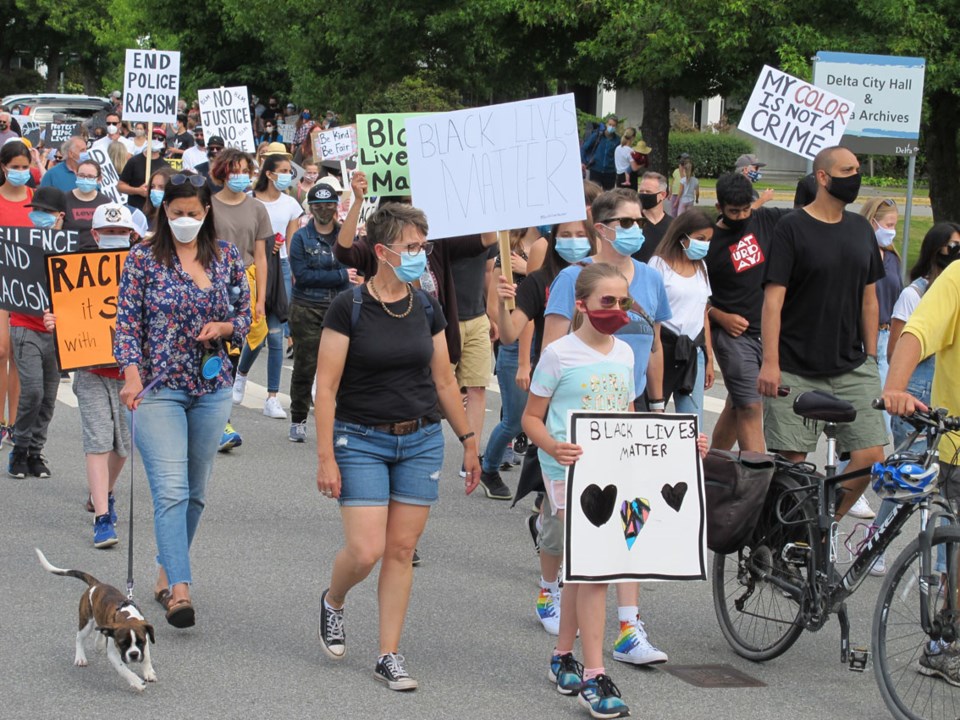‘Delta has racism – we need change. No justice – no peace.’
That was the chat for an estimated 400 people, who came out for an anti-racism rally and march in Ladner Saturday afternoon.
The march was organized by Delta residents Julia Johnson Baker, Kate Henderson and Devon Young who started the Delta Families Against Racism Facebook group several weeks ago.
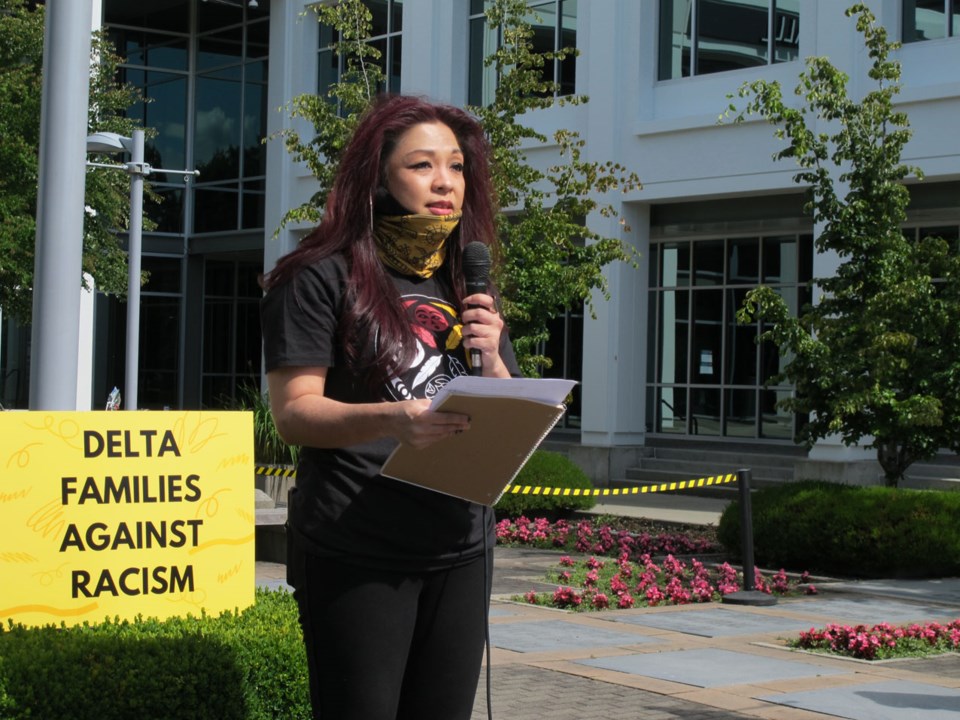
“We put this together because we were just three moms who were just pretty much tired of listening to the stories happening in our communities,” said Henderson. “This is pretty historic. From what people have been saying this is the first time to have a march of this kind on this particular topic, and so I think it is important as a community that we recognize this because it is important. This topic is highly important.”
Former school district trustee Rhiannon Bennett gave a welcoming on behalf of the Musqueam Protocol Office and a land acknowledgment of the traditional territory of the Tsawwassen First Nation.
“All of a sudden I’m feeling a bit emotional as I speak here today. This is not the first time I have spoken at a rally like this, but I honestly never thought I would be speaking at a rally like this in Ladner,” said Bennett. “I think about George [Floyd] which has really been the flashpoint for this and listening to the calls. He called for his mother and was calling for all mothers – we should all be answering this call.”
Bennett said we have to confront racism head on, name it and address it head on.
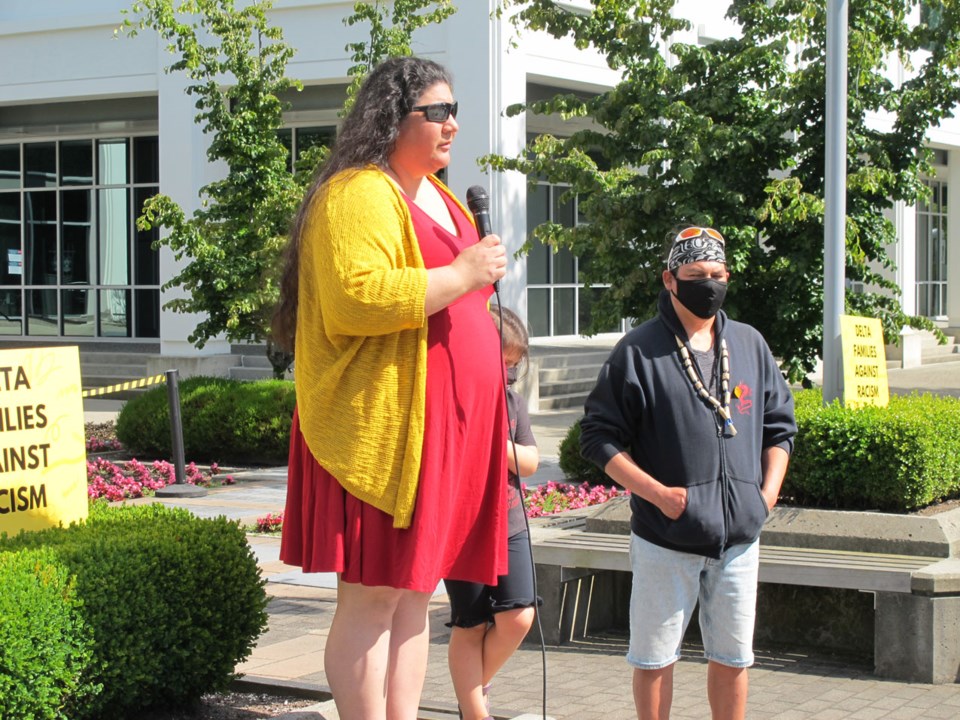
“I don’t want to talk about equality. I don’t want to live in an equal world. I want to live in an equitable world,” she said. “I want to live in a world where everybody’s needs are met. Your needs are different than my needs, but they are both valid.”
Malia Baker spoke of her experiences of growing up as a black teen in Ladner.
“In Grade 7 for one of my last writing assignments that would determine a big percentage of my grade I chose to write about my experiences as a black kid and my experiences of racism,” she said. “When I picked up my pen to start writing I was shaking. I was shaking because out of the 460 students at my school I was one of the only two black kids that I knew of and I was scared to turn in my report into the white teacher. I was shaking because when the word black was said in class heads would turn instantly in my direction. I was shaking because of the hundreds of times people would touch my hair even if I didn’t know the person like a pet to be groomed. I was shaking because of the times my so-called friends would say the n-word in a song and say sorry Malia but never apologizing for saying the word in the first place. I was shaking because of that time when I was only 11 and went into a gas station and the white man behind the counter told me to leave my things at the front desk to know I wouldn’t steal and when I asked him why, he said he didn’t trust me because I looked like a thug, but when my white friends came in and he saw them, suddenly things were okay.
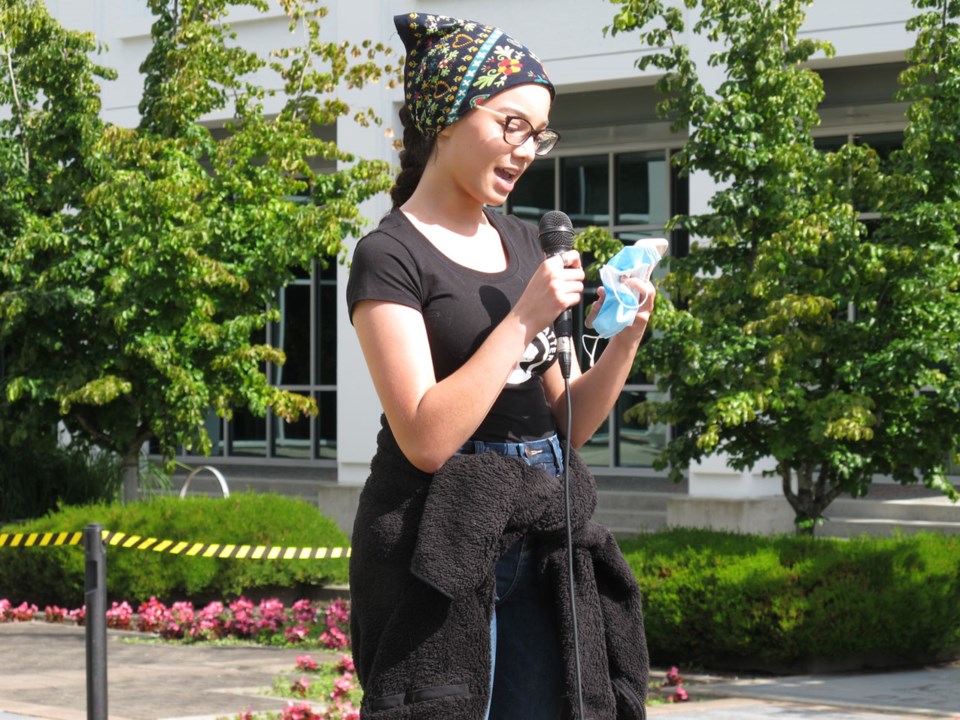
“Now a year later I’m still shaking. I’m still shaking for my black brothers and sisters who have been killed at the hands of the police for things as little as buying a bag of Skittles and I’m still shaking every time I step front out of my door knowing every possibility. I hope you are all shaking in anger with me because I’m tired and angry. I’m an African-born Canadian. I’m black youth. I have experienced racism that comes from unawareness and also targeted racism as well. We need change and I’m so grateful you have all come to be a part of that change.”
Political leaders on hand
The City of Delta was represented by Mayor George Harvie, councillors Alicia Guichon and Dan Copeland as well as city manager Sean McGill.
Also on hand was Nancy Gordon from the Delta school district, Delta south MLA Ian Paton and Delta MP Carla Qualtrough.
Harvie said he, along with council and city staff were there to listen and learn.
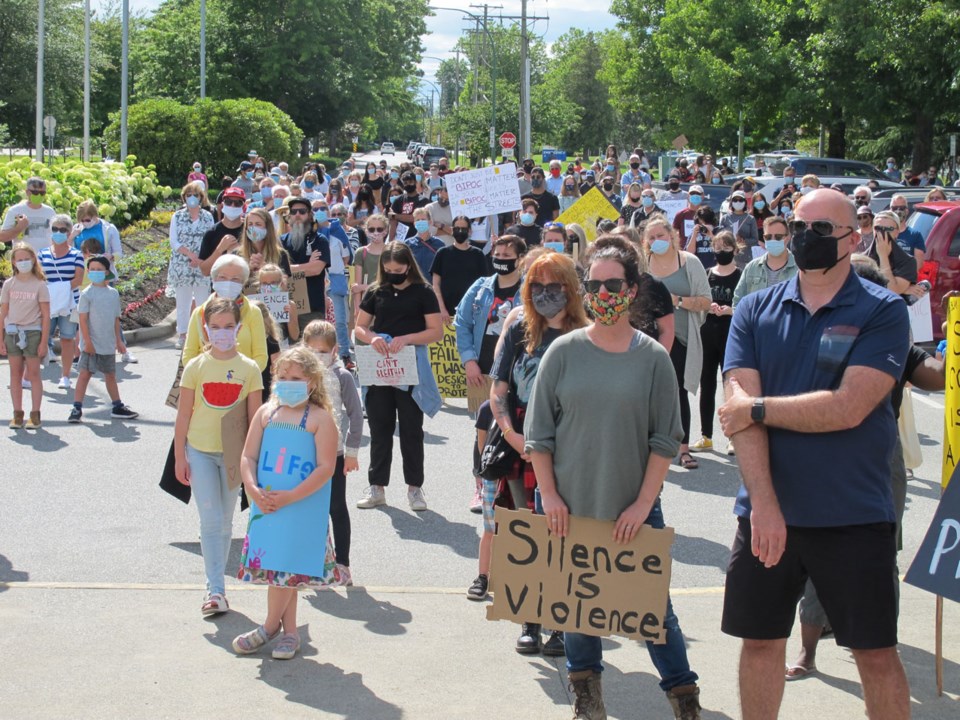
“As elected officials and leaders we have to do more to ensure we are doing everything possible to stop the systemic discrimination that is here…it’s obvious and we need to do more,” Harvie said. “I talked about pre COVID-19 about doing a mayor’s summit on this topic, so next year we need to do this. I’m here to listen, learn and see what more I can do to help.”
Paton said the march was a sign of the times and that this was being brought to light in Delta.
“Historically decade after decade has gone by where we know what we should be doing, but we turn a blind eye from time to time,” he said. “Now it is high time with everything that has happened over the past few months that every community throughout North America – throughout the world – has to say to themselves that we are all fortunate to be born the way we were born and not everyone is the same as eye am or my neighbor, but this is a society that we have to survive to make this a better world, so that means having total trust, respect for everyone. It doesn’t matter what your background is, your culture, your faith, the colour of your skin.
Paton said he was also happy to see so many young people at the march.
“When you look around it is all about kids here. The only way the world will change is when you have parents that instill upon their kids the value of being a good citizen, being a person that loves their neighbor, appreciates other people in the world and learns to accept we are all the same inside no matter the colour of their skin.”
Qualtrough, who attended along with her husband and two kids said this movement around anti-racism and the important conversations that it is sparking across the country about how are systems need to be improved and be more inclusive is really important.
“For me it is important to have my kids here and to know that this is going on in their country and they can be a part of it,” she said.
